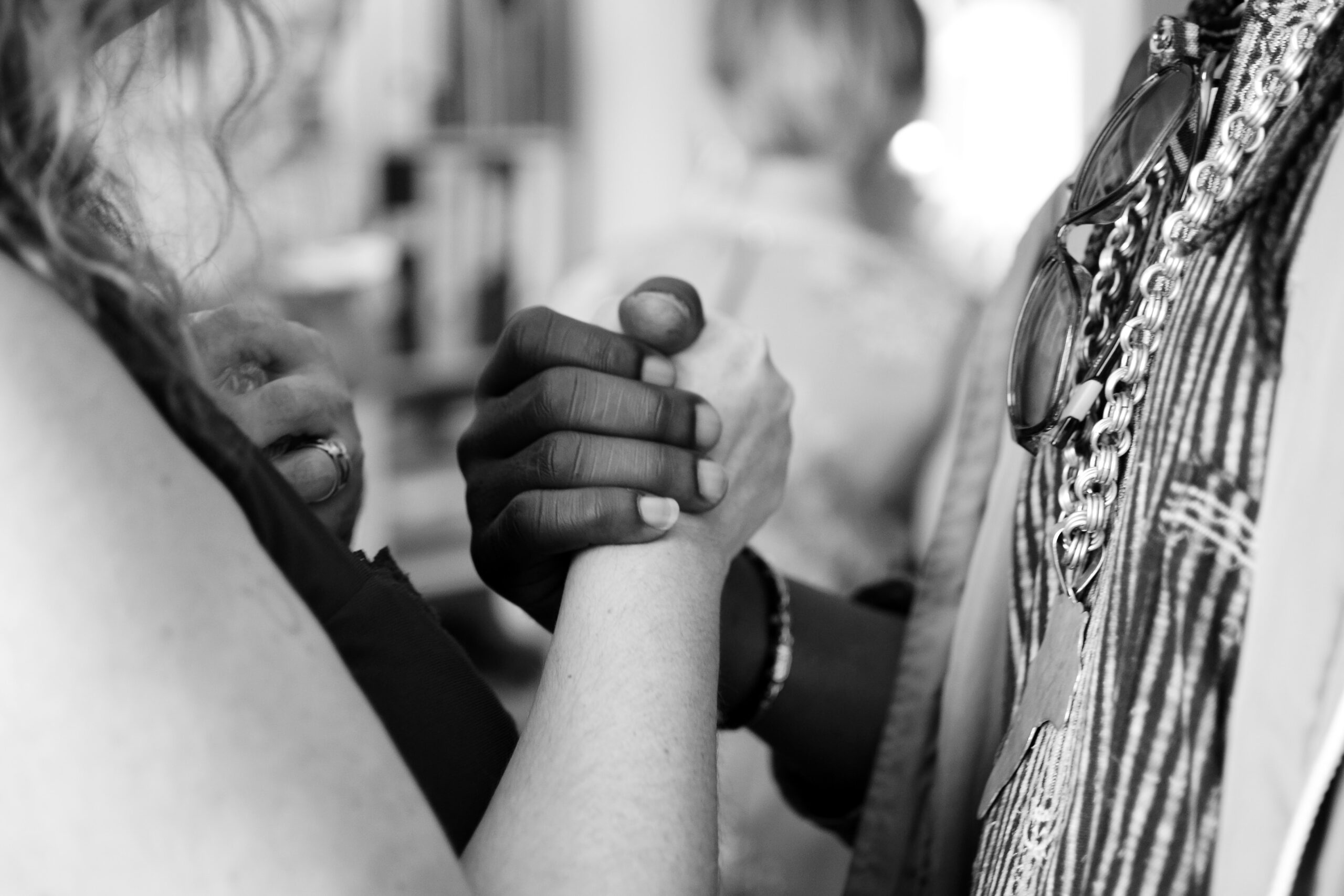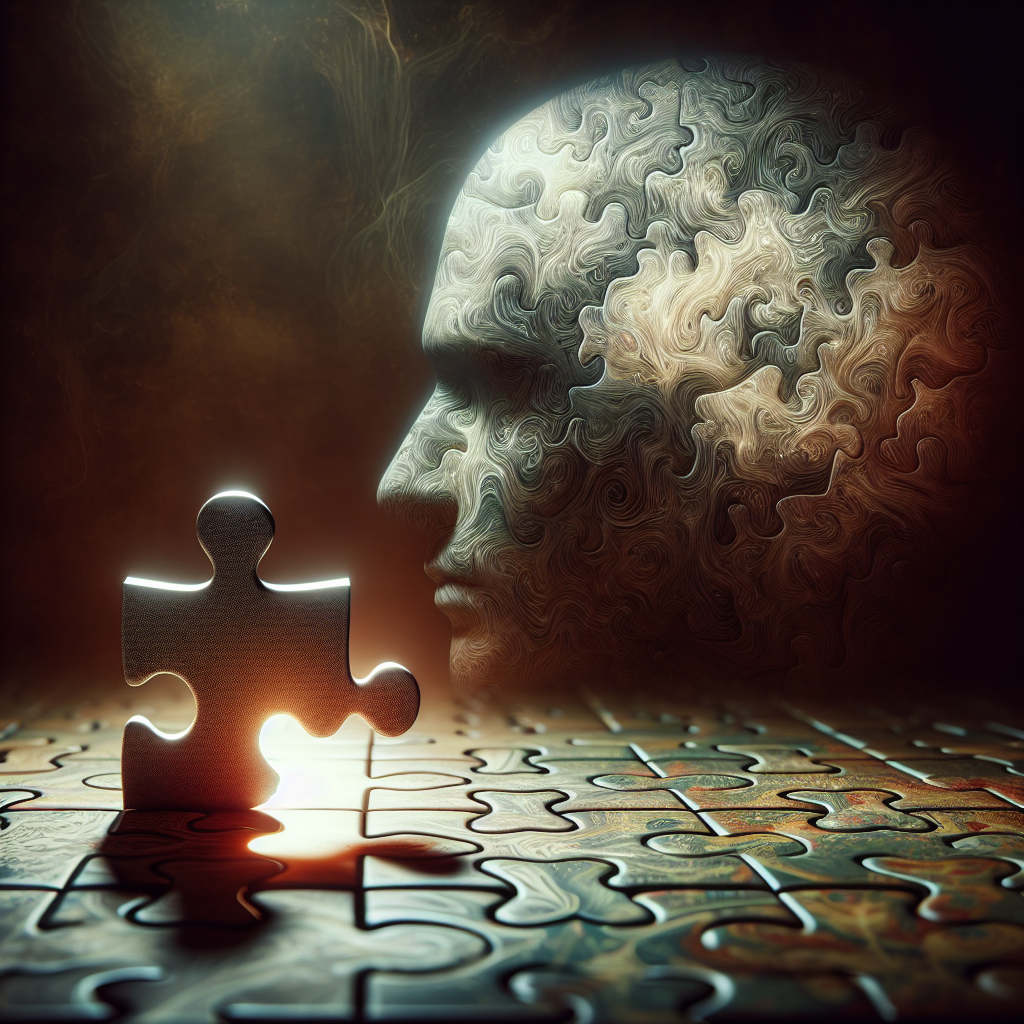Have you ever wondered why you behave the way you do? “Why Are You the Way That You Are: Unveiling the Secrets of Human Behavior” is a fascinating exploration into the depths of human nature. This article explores the intricate factors that shape our personalities, motivations, and decision-making processes. Through intriguing insights and thought-provoking research, you’ll gain a deeper understanding of what makes you, you. So, get ready to embark on a journey of self-discovery and uncover the mysteries behind the enigma that is human behavior.
The Influence of Genetics on Human Behavior
The Role of DNA in Shaping Behavior
When it comes to understanding human behavior, one cannot ignore the impact of genetics. Our genes, which are made up of DNA, play a significant role in shaping who we are. DNA contains the instructions for building and maintaining our bodies, including our brains. Within our DNA, there are specific genes that influence various aspects of our behavior, such as temperament, intelligence, and even some mental health conditions.
Genetic Variations and Personality Traits
Genetic variations contribute to the development of personality traits. These variations are responsible for the diversity we see in people’s personalities. Research has identified certain genetic markers associated with traits such as extraversion, conscientiousness, and openness to experience. These genetic influences provide a foundation for understanding why some individuals are more extroverted and adventurous, while others are introverted and cautious.
Inherited Mental Disorders
Some mental disorders have a strong genetic component. Conditions such as schizophrenia, bipolar disorder, and depression can be passed down through generations due to genetic factors. While genetics alone may not determine whether someone will develop a mental disorder, they significantly increase the risk. Understanding the role of genetics in mental disorders can help inform treatments and interventions, leading to better outcomes for affected individuals.
The Impact of Nature vs. Nurture
The age-old debate of nature versus nurture tries to determine how much of our behavior is influenced by genetics and how much is shaped by our environment. While both factors play a role, research suggests that genetics contribute significantly to behavior traits. However, it is important to note that genetics interact with environmental factors, such as upbringing and experiences, to shape behavior. The interplay between nature and nurture is complex and dynamic, making it difficult to separate their individual influences completely.
Environmental Factors and Human Behavior
The Power of Early Childhood Experiences
Early childhood experiences can have a profound impact on human behavior. The relationships and interactions a child has with their caregivers play a critical role in their social, emotional, and cognitive development. Positive early experiences, such as nurturing and responsive caregiving, can foster healthy attachment and promote positive behavior. Conversely, neglect, abuse, or trauma during this crucial period can lead to long-lasting emotional and behavioral difficulties.

Sociocultural Influences on Behavior
Sociocultural factors, including societal norms, values, and expectations, significantly influence human behavior. Cultural norms shape the way we think, feel, and behave, guiding our interactions and decision-making processes. These cultural influences vary across different societies, contributing to the diversity in human behavior. Understanding the sociocultural context is essential for comprehending why people from different cultures may exhibit distinct behavioral patterns.
Media and Its Effect on Behavior
In today’s digital age, media has a tremendous impact on human behavior. The content we consume through various media platforms, such as television, movies, social media, and video games, can shape our attitudes, beliefs, and behaviors. Media influences our perceptions of the world and can promote both positive and negative behaviors. For example, exposure to violent media has been linked to increased aggression, while positive role models in media can inspire prosocial behavior.
The Science of Personality
The Big Five Personality Traits
The Big Five Personality Traits provide a framework for understanding and measuring individual differences in personality. These traits include openness, conscientiousness, extraversion, agreeableness, and neuroticism. Each trait represents a continuum, and individuals fall somewhere along the spectrum for each factor. The Big Five traits help psychologists describe and predict behavioral tendencies, providing insights into why individuals may exhibit certain patterns of behavior.
Trait Theories and Behavior
Trait theories propose that personality traits are relatively stable over time and across situations, influencing behavior consistently. According to these theories, individuals possess a set of enduring traits that predispose them to exhibit specific behaviors. Traits can be seen as underlying characteristics that shape how individuals think, feel, and act. For example, someone high in extraversion may be more likely to engage in social activities and seek out stimulation.
Personality Development over the Lifespan
Personality development is a lifelong process influenced by various factors, including genetics, environment, and individual experiences. While some personality traits remain relatively stable across the lifespan, others may change and evolve as individuals interact with their environment and acquire new skills. Understanding the dynamic nature of personality development can provide valuable insights into the factors that shape behavior at different stages of life.
The Role of Socialization

Family Dynamics and Behavior
Family dynamics play a crucial role in shaping human behavior. Our first social environment is typically our family, and the interactions within the family unit significantly impact our social, emotional, and cognitive development. Parenting styles, family values, and communication patterns can influence how individuals perceive and interpret the world, interact with others, and handle challenges. Strong family bonds and supportive relationships foster healthy behavior, while dysfunctional family dynamics can contribute to negative behavior patterns.
Peer Influence and Conformity
During adolescence, peer influence becomes increasingly important in shaping human behavior. As young individuals strive for acceptance and belonging, they often conform to the behavior, attitudes, and values of their peers. Peer pressure can lead to both positive and negative behavior changes, depending on the group’s norms and the individual’s personal values. Understanding the power of peer influence can help develop targeted interventions and support systems to promote positive behavior among adolescents.
Education and Behavior
Education plays a crucial role in shaping behavior and promoting personal development. Formal education provides opportunities for individuals to gain knowledge, develop critical thinking skills, and acquire social competencies. The educational environment, including teaching methods, school climate, and support systems, can greatly influence behavior. Quality education equips individuals with the tools they need to succeed academically and socially, contributing to positive behavior outcomes.
Biological Determinants of Behavior
Neurotransmitters and Behavior
Neurotransmitters are chemical messengers in the brain that facilitate communication between neurons. These chemicals play a vital role in regulating various aspects of behavior, including mood, motivation, and cognition. Imbalances or irregularities in neurotransmitter function can lead to behavioral disorders, such as depression, anxiety, and attention-deficit/hyperactivity disorder (ADHD). Understanding the role of neurotransmitters in behavior helps inform treatment approaches, such as medication targeting specific neurotransmitter systems.
Hormones and Their Impact on Behavior
Hormones, such as cortisol, testosterone, and oxytocin, influence behavior by regulating physiological processes and signaling emotional responses. For example, cortisol is known as the stress hormone and can affect behavior under stressful situations. Testosterone plays a role in aggression and dominance, while oxytocin is associated with bonding and social behaviors. Hormonal imbalances can contribute to behavioral disturbances, highlighting the intricate connection between biology and behavior.

The Brain and Behavior
The brain serves as the command center for all human behavior. Different regions of the brain are responsible for regulating various functions, including emotions, decision-making, and motor skills. Through advanced imaging techniques, researchers have gained insights into how specific brain structures and neural pathways influence behavior. Disorders or injuries affecting certain brain regions can lead to significant changes in behavior, highlighting the importance of brain health in shaping human behavior.
Psychological Theories Explaining Human Behavior
Psychodynamic Perspective
The psychodynamic perspective, rooted in the work of Sigmund Freud, suggests that unconscious forces, such as repressed desires and unresolved conflicts, drive human behavior. Freud believed that the unconscious mind influences conscious thoughts and actions, shaping behavior in subtle and complex ways. Exploring the unconscious can help uncover underlying motives and provide insights into the dynamics of human behavior.
Behavioral Perspective
The behavioral perspective focuses on observable behaviors and how they are influenced by learning experiences. It suggests that behavior is learned through conditioning processes, where individuals learn to associate specific behaviors with rewards or punishments. By understanding the environmental factors that shape behavior, behavioral interventions can be designed to promote positive behavior and reduce maladaptive patterns.
Cognitive Perspective
The cognitive perspective explores how thoughts, beliefs, and perceptions influence behavior. It emphasizes the role of internal mental processes in mediating the relationship between stimuli and responses. Cognitive theories suggest that individuals interpret their experiences through a unique cognitive framework, which affects how they perceive and respond to the world. Understanding cognitive processes can help explain why individuals engage in certain behaviors and develop interventions to modify maladaptive thinking patterns.
Humanistic Perspective
The humanistic perspective emphasizes personal growth, self-actualization, and the pursuit of meaning and fulfillment in life. It views individuals as inherently good and places importance on self-awareness, authenticity, and personal choice. According to this perspective, behavior is driven by the desire to fulfill one’s potential and achieve self-fulfillment. Humanistic therapies aim to facilitate personal growth and help individuals align their behavior with their true selves.

Social Learning Theory
Social learning theory suggests that behavior is learned through observing and imitating others. Individuals acquire new behaviors by observing the consequences of others’ actions and modeling their behavior accordingly. This theory highlights the powerful influence of role models and the social context in shaping behavior. By recognizing the role of observational learning, interventions can be designed to promote positive behavior by providing appropriate role models and reinforcing desirable behaviors.
The Influence of Emotions on Behavior
The Role of Emotions in Decision Making
Emotions play a crucial role in decision-making processes. Our emotional state can impact the choices we make, often influencing behavior in unexpected ways. Strong emotions, such as fear or anger, can override rational thinking and lead to impulsive or irrational behavior. On the other hand, positive emotions, like joy or love, can motivate prosocial behavior and promote cooperation. Understanding the influence of emotions on decision-making helps explain why individuals may behave in certain ways under different emotional states.
The Impact of Emotional Intelligence on Behavior
Emotional intelligence refers to the ability to recognize, understand, and manage one’s own emotions as well as the emotions of others. It plays a significant role in regulating behavior and interpersonal interactions. Individuals with high emotional intelligence are better equipped to navigate social situations, handle conflicts, and build meaningful relationships. Cultivating emotional intelligence can lead to positive behavior outcomes and contribute to overall well-being.
Emotional Disorders and Behavior
Emotional disorders, such as anxiety disorders and mood disorders, can significantly impact behavior. These disorders involve disruptions in emotional processing, leading to maladaptive behaviors and coping mechanisms. Individuals with emotional disorders may exhibit avoidance behaviors, aggression, or self-destructive tendencies. Identifying and addressing the underlying emotional factors is key to managing these disorders and promoting healthier patterns of behavior.
Cultural Differences in Behavior
Individualistic vs. Collectivistic Cultures
Cultures vary in their emphasis on individualism versus collectivism. Individualistic cultures prioritize personal independence, autonomy, and self-expression, leading to more individualistic behavior patterns. In contrast, collectivistic cultures emphasize interdependence, group harmony, and the collective well-being, resulting in behaviors that prioritize group goals over individual desires. Understanding these cultural differences is essential for fostering cross-cultural understanding and effective communication.
Cultural Norms and Behavior
Cultural norms, which are the shared expectations and rules within a culture, greatly influence behavior. These norms dictate what is considered acceptable or unacceptable behavior within a specific cultural context. They guide individuals in their interactions with others, shaping behavior at both the individual and societal levels. Failure to conform to cultural norms can lead to social sanctions and ostracism, highlighting the powerful influence of cultural expectations on behavior.
Cross-Cultural Psychology
Cross-cultural psychology examines the influence of culture on human behavior, comparing different cultural groups to identify similarities and differences. By exploring how cultural factors shape behavior, cross-cultural psychologists gain insights into the universal and culturally-specific aspects of human behavior. This field of study helps promote cultural awareness and understanding, contributing to more inclusive and culturally sensitive interventions and policies.
The Effects of Stress on Behavior
The Physiological Response to Stress
Stress triggers a physiological response known as the “fight-or-flight” response, which prepares the body to deal with perceived threats. This response involves the release of stress hormones, increased heart rate, heightened alertness, and other physiological changes. In the short term, these responses can enhance performance and facilitate adaptive behavior. However, chronic or excessive stress can lead to negative behavioral changes, such as aggression, withdrawal, or substance abuse.
Psychological Reactions to Stress
In addition to the physiological response, stress also elicits psychological reactions that influence behavior. Stress can impair cognitive functioning, memory, and decision-making abilities, leading to difficulties in problem-solving and self-regulation. Individuals may experience emotional distress, mood swings, or irritability, which can impact interpersonal relationships and overall behavior. Managing stress effectively is crucial for maintaining healthy behavior and well-being.
The Link Between Stress and Behavioral Changes
Stress has been linked to various behavioral changes, including increased risk-taking, decreased impulse control, and changes in appetite and sleep patterns. When individuals are under stress, they may engage in maladaptive coping strategies, such as substance abuse or aggression, as a way to alleviate the distress. Recognizing the connection between stress and behavioral changes can inform interventions aimed at stress management and promoting healthier coping mechanisms.
Unconscious Influences on Behavior
Freud’s Theory of the Unconscious Mind
According to Sigmund Freud, the unconscious mind holds thoughts, desires, and memories that are outside of our conscious awareness but influence our behavior. Freud believed that unresolved conflicts and repressed memories from early childhood can influence behavior in subtle ways. By bringing these unconscious processes to conscious awareness through psychoanalysis, individuals can gain insights into their behavior and work towards resolving inner conflicts.
Implicit Bias and Behavior
Implicit bias refers to automatic, unconscious biases or prejudices that individuals hold towards certain groups of people. These biases can influence behavior, shaping how individuals perceive, judge, and interact with others. Implicit biases can lead to discriminatory practices or unfair treatment, even when individuals consciously believe in equality. Addressing implicit biases through awareness and education can help reduce their negative impact on behavior and promote more inclusive attitudes and actions.
Subliminal Messaging
Subliminal messaging refers to the presentation of stimuli below the threshold of conscious awareness, with the intention of influencing behavior. While the effects of subliminal messaging are still debated, research suggests that subtle cues can prime certain thoughts or emotions, impacting subsequent behavior. However, it is important to note that these effects are typically very subtle and short-lived. The influence of subliminal messaging on behavior may not be as significant as often portrayed in popular culture.
In conclusion, human behavior is a complex interplay of genetic, environmental, psychological, and cultural factors. While genetics contribute to certain behavioral traits and disorders, the environment, such as early childhood experiences, socialization, and cultural influences, also plays a significant role. Understanding the multitude of factors that shape behavior is essential for promoting positive behavior outcomes, addressing mental health issues, and fostering a more compassionate and inclusive society.
